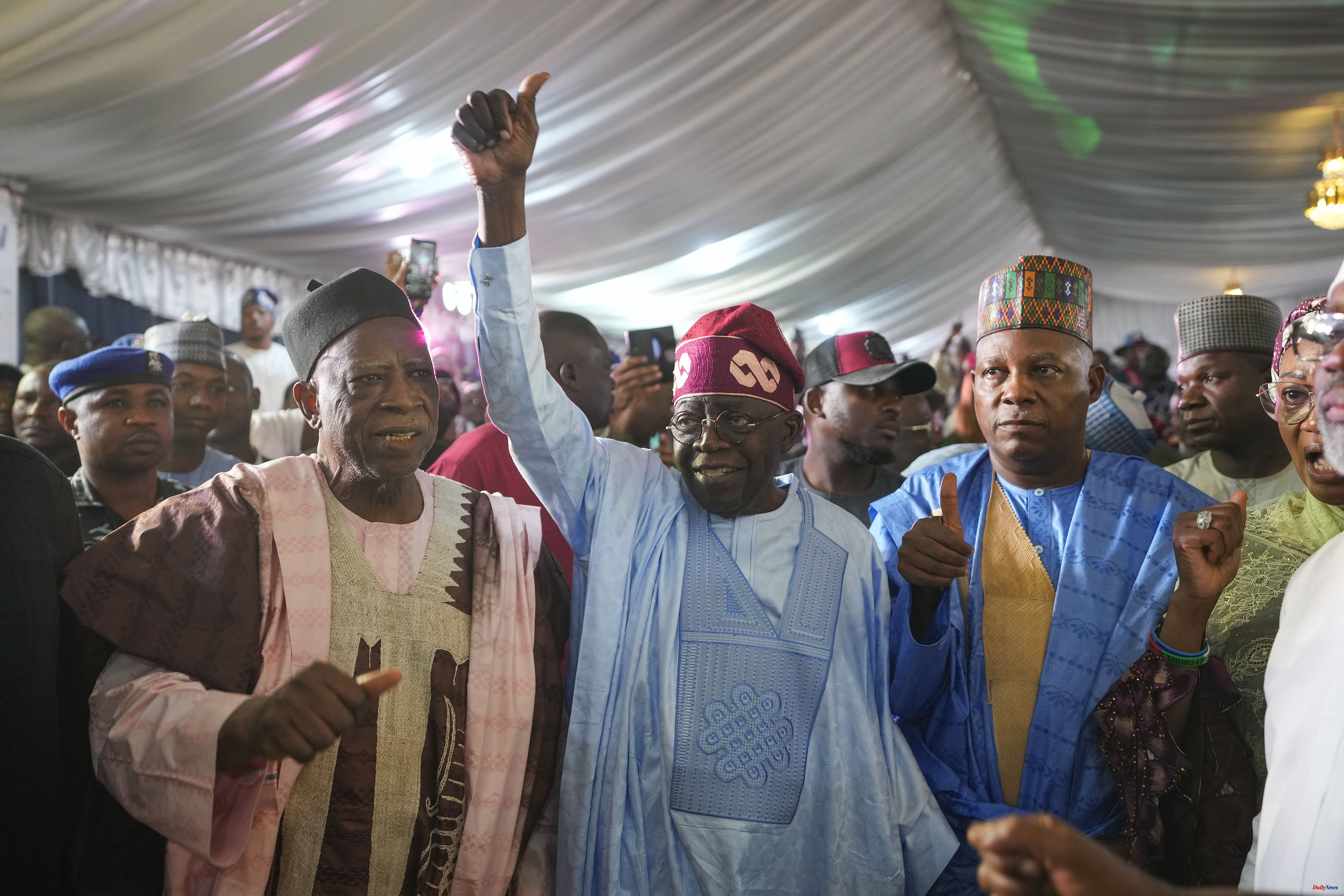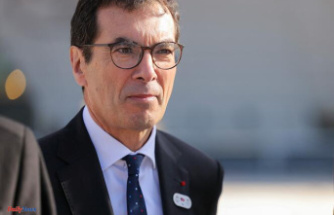The candidate of the ruling party in Nigeria, Bola Tinubu, won this Wednesday the victory in the presidential elections of the most populous country in Africa, where the opposition denounces "massive" fraud and demands to annul the elections.
The All Progressives Congress (APC) candidate won 8.8 million votes, ahead of Atiku Abubakar of the People's Democratic Party (PDP) of 6.9 million and Peter Obi of the Labor Party (PDP) of 6.1 million ( PL).
In addition, he also obtained 25% of the votes in at least 24 of the 36 Nigerian states and in Abuja, the federal capital, a necessary condition to be declared the winner after the first ballot.
"Tinubu Bola Ahmed, of the APC, having satisfied the requirements of the law, is declared the winner and elected," the president of the National Electoral Commission (INEC), Mahmood Yakubu, announced before the press in Abuja at dawn.
However, the two main opposition parties on Tuesday denounced the election as a "sham" and called for its annulment even before the end of the count.
At the age of 70, Tinubu was governor of Lagos state and is known as 'the godfather' for his enormous political influence. He will now succeed outgoing president, 80-year-old former general Muhammadu Buhari, who is retiring after a constitutional two-term limit in which critics say he reneged on his promise to increase the country's security.
Ahead, this Yoruba of the Muslim confession has the difficult task of raising the most populous country in Africa (216 million inhabitants), ravaged by a declining economy, recurrent violence by armed groups and the general impoverishment of the population.
Long considered a favorite for this election, especially thanks to his party's national influence and fortune, Tinubu's lead narrowed as the campaign progressed.
In parallel, the figure of Peter Obi, a 61-year-old former Christian governor praised for his integrity, managed to seduce a youth eager for change, tired of the aging elite and its corrupt reputation.
In addition, the shortage of tickets and fuel several weeks before the vote fueled the anger of Nigerians against the government, which presents a disastrous balance due to the increase in insecurity and the cost of living.
More than 87 million people were called to vote on Saturday, although the final participation has not yet been disclosed. Although the vote passed without incident, delays in the count and major failures in the electronic transfer of results raised suspicions in the opposition, which on Tuesday denounced "a farce."
"We have completely lost faith in the whole process," they said at a joint press conference, calling for its "immediate cancellation" and the holding of a "new vote."
For its part, INEC rejected the opposition's "unfounded and irresponsible" accusations. "When dissatisfied with the outcome of an election," candidates "are free to go to court" but cannot request cancellation before the end of the election, the commission said in a statement.
Nigeria has a long history of vote buying and manipulation. In fact, the seven national elections organized since the return of democracy in 1999 have been denounced.
Several international observers, including a mission from the European Union, denounced "lack of transparency" and failures in the organization of the vote count.
Opposition supporters, and especially those of Peter Obi, who believed in the possible victory of this groundbreaking candidate, especially after winning the key state of Lagos, a stronghold of the ruling party, ended these elections with great disappointment.
The United Nations launched an appeal for "calm" on Tuesday night, asking the candidates and their supporters to "refrain from any behavior that could undermine the electoral process" and "peace and stability."
According to the criteria of The Trust Project












